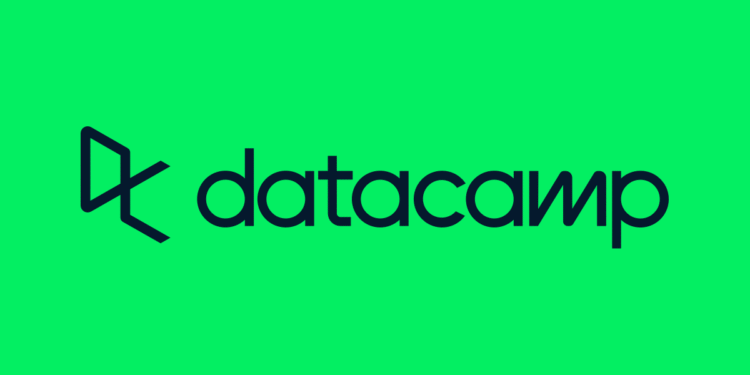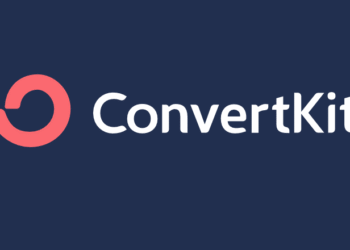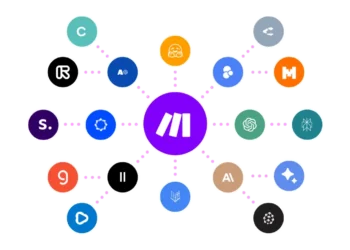What does it take to succeed in the rapidly evolving field of data science, where the demand for skilled professionals is projected to grow by 31% from 2019 to 2029, according to the Bureau of Labor Statistics? With the increasing importance of data-driven decisions, the role of data scientists has become crucial in driving business success. DataCamp, a leading online learning platform, offers a comprehensive data science training program that can help you achieve your career goals. As you embark on your data science journey, you may wonder: can a platform like DataCamp provide the necessary skills and knowledge to stay ahead in this competitive field?
Key Takeaways
- Data science is a rapidly expanding field with a projected growth rate of 31% from 2019 to 2029.
- DataCamp is a popular online learning platform that offers data science training and courses.
- The platform provides interactive learning environments, real-world projects, and community support resources.
- DataCamp’s courses cover a wide range of topics, including data analysis, machine learning, and data visualization.
- With DataCamp, you can gain the necessary skills and knowledge to succeed in the field of data science and stay ahead in the competitive job market.
- DataCamp’s data science training program is designed to help you achieve job readiness within a short period.
- The platform offers a variety of courses and learning paths to suit different skill levels and career goals.
Introduction to DataCamp
DataCamp is a leading online learning platform that provides interactive data analysis courses to help individuals develop skills in data science. With a focus on hands-on learning, DataCampoffers a unique approach to education, allowing students to learn by doing. The platform provides an interactive learning environment where students can learn Python programming and R programming, two essential skills for any data scientist.
What is DataCamp?
DataCampis designed to help individuals learn data science skills, from basic to advanced levels. The platform offers a range of courses, from introductory courses in Python programming to advanced courses in machine learning and data visualization. With DataCamp, students can learn at their own pace, completing courses and earning certificates to demonstrate their skills.
Overview of Data Science
Data science is a rapidly growing field that involves extracting insights and knowledge from data. It requires a combination of skills, including programming, statistics, and domain expertise. DataCamp provides students with the skills they need to succeed in data science, including R programming and data visualization.
Why Choose DataCamp for Learning?
DataCamp offers a unique learning experience that combines interactive learning with real-world projects. Students can learn by working on projects that simulate real-world scenarios, allowing them to develop practical skills that can be applied in the workplace. With DataCamp, students can gain the skills and knowledge they need to succeed in data science, including data analysis courses and Python programming.
Getting Started with DataCamp
To begin your journey with DataCamp, an online learning platform, you’ll need to create an account. This process is straightforward and allows you to access a wide range of data science training courses and resources. With approximately 2.5 quintillion bytes of data generated daily, the demand for skilled data scientists is on the rise, making DataCamp an ideal platform for those looking to pursue a career in this field.
Once you’ve created your account, you can start navigating the platform. DataCamp offers a user-friendly interface that makes it easy to find and enroll in courses. You can choose from various Career Tracks, each consisting of around 26 courses, and earn a certificate upon completion. The platform also features a “Projects” section with guided projects, a “Practice” section with multiple-choice questions, and “Assessments” that adapt to your skill level.
Creating Your Account
Creating an account on DataCampis simple. You can sign in using your existing Facebook, LinkedIn, or Google account, providing flexibility in account creation. This streamlined process allows you to quickly start exploring the platform and accessing its resources.
Navigating the Platform
After creating your account, you can begin navigating the platform. DataCamp’s intuitive design makes it easy to find and enroll in courses, as well as access various resources such as projects and practice sessions. With its comprehensive data science training, DataCamp is an ideal online learning platform for those looking to develop their skills in this field.
Core DataCamp Features
DataCamp’s interactive learning environment is designed to help users learn data science by doing. With real-world projects and hands-on exercises, users can practice their skills and gain practical experience. The platform also offers a range of data visualization classes and machine learning tutorials, allowing users to develop a deeper understanding of these key concepts.
One of the key benefits of DataCamp is its community support resources. Users can connect with other learners and instructors, ask questions, and get feedback on their work. This helps to create a supportive and collaborative learning environment, where users can learn from each other and stay motivated. DataCamp’s data visualization classes, for example, provide users with the skills they need to effectively communicate insights and trends in data, while the machine learning tutorials help users to build predictive models and make informed decisions.
By combining interactive learning, real-world projects, and community support, DataCamp provides a comprehensive learning experience that helps users to develop the skills they need to succeed in data science. Whether you’re just starting out or looking to advance your career, DataCamp’s core features make it an ideal platform for learning and growth. With its focus on practical skills and hands-on learning, DataCamp is an excellent choice for anyone looking to develop their skills in data visualization classes and machine learning tutorials.
Choosing the Right Learning Path
When it comes to data science training, selecting the right learning path is crucial for success. With numerous options available on online learning platforms, it can be overwhelming to decide where to start. DataCamp offers a wide range of courses and learning paths, catering to different skill levels and interests.
One of the key decisions is whether to pursue data science or data engineering. While both fields are closely related, they require distinct skill sets and knowledge. Data science focuses on extracting insights from data, whereas data engineering emphasizes the design, build, and maintenance of architectures that support data science applications.
Data Science vs. Data Engineering
Understanding the differences between these two fields will help you choose the right learning path. DataCamp provides specialized tracks in both data science and data engineering, allowing you to dive deeper into your area of interest.
Specialized Tracks in DataCamp
From data visualization to machine learning, DataCamp’s specialized tracks offer a comprehensive learning experience. These tracks are designed to help you develop practical skills and apply them to real-world problems, making you more competitive in the job market.
Selecting Courses Based on Skill Level
Whether you’re a beginner or an experienced professional, DataCamp’s online learning platform offers courses tailored to your skill level. By selecting courses that align with your goals and expertise, you can maximize your learning experience and achieve success in the field of data science.
Essential Courses for Beginners
When it comes to data science, having a strong foundation in programming languages and data analysis is crucial. DataCamp offers a range of courses that cater to beginners, including introduction to Python for data science, R programming for beginners, and SQL fundamentals. These courses are designed to provide a comprehensive understanding of the concepts and techniques used in data science, and are an excellent starting point for those new to the field.
Python programming is a popular choice among data scientists, and for good reason. It’s easy to learn, versatile, and has a wide range of applications. With DataCamp’s introduction to Python for data science course, you’ll learn the basics of Python programming and how to apply it to data science tasks. R programming is another essential skill for data scientists, and DataCamp’s R programming for beginners course provides a comprehensive introduction to the language and its applications in data analysis courses.
In addition to Python and R programming, SQL fundamentals are also essential for data scientists. DataCamp’s SQL fundamentals course covers the basics of SQL and how to use it to manipulate and analyze data. By taking these courses, you’ll gain a solid foundation in the skills and techniques used in data science, and be well on your way to becoming a proficient data scientist. With DataCamp’s data analysis courses, you can learn at your own pace and gain the skills you need to succeed in this exciting field.
Introduction to Python for Data Science
This course provides a comprehensive introduction to Python programming and its applications in data science. You’ll learn the basics of Python, including data types, functions, and control structures, as well as how to use popular libraries like Pandas and NumPy.
R Programming for Beginners
This course provides a comprehensive introduction to R programming and its applications in data analysis. You’ll learn the basics of R, including data types, functions, and control structures, as well as how to use popular libraries like dplyr and ggplot2.
SQL Fundamentals
This course covers the basics of SQL and how to use it to manipulate and analyze data. You’ll learn how to write SQL queries, create databases, and perform data analysis tasks using SQL.
Advanced Topics and Specializations
As you progress in your data science journey, it’s essential to explore advanced topics and specializations. DataCamp offers a range of courses and tutorials, including machine learning tutorials, to help you deepen your understanding of data science concepts. With a focus on practical applications, these courses enable you to work on real-world projects and develop skills that are in high demand.
Data visualization classes are another critical aspect of data science, allowing you to effectively communicate insights and findings to both technical and non-technical audiences. By mastering data visualization techniques, you can create interactive and dynamic visualizations that help drive business decisions. DataCamp’s courses and tutorials provide a comprehensive introduction to data visualization, covering topics such as data preparation, visualization tools, and best practices.
With DataCamp, you can access a wide range of courses and tutorials on advanced topics, including big data analytics with Python. These courses are designed to help you develop the skills and expertise needed to succeed in the field of data science. By leveraging DataCamp’s resources, you can take your data science skills to the next level and stay up-to-date with the latest developments in the field.
Supplemental Resources
To further enhance your data science training, it’s essential to explore supplemental resources beyond the online learning platform. DataCamp offers a wealth of additional materials, including blogs and tutorials, to help you stay up-to-date with the latest developments in the field. These resources provide valuable insights and practical tips to support your learning journey.
Recommended books for data science are also an excellent way to deepen your understanding of key concepts and techniques. By combining online learning with traditional study materials, you can create a comprehensive learning plan that suits your needs and goals. Additionally, online communities and forums, such as Kaggle, offer a great way to connect with other learners, share knowledge, and gain feedback on your projects.
With over 460,000 data scientists using DataCamp, you can tap into a vast network of professionals and enthusiasts who share your interests. By leveraging these supplemental resources, you can accelerate your progress, overcome challenges, and achieve your goals in data science. Whether you’re looking to improve your skills in Python, R, or other programming languages, there are numerous resources available to support your online learning platform experience.
Tracking Your Progress
As you continue on your data science journey with DataCamp, it’s essential to track your progress to stay motivated and focused. DataCamp offers a range of features to help you monitor your progress, including skill and progress tracking. This allows you to see how far you’ve come in your data analysis courses and identify areas where you need improvement. By utilizing these features, you can refine your skills in Python programming and other essential data science tools.
Setting personal learning goals is also crucial to achieving success in data science. With DataCamp, you can set goals and track your progress towards achieving them. This helps you stay on track and motivated, even when faced with challenging topics like machine learning or big data analytics. By combining goal-setting with DataCamp’s progress tracking features, you can create a personalized learning plan that suits your needs and helps you achieve your goals in data analysis courses and Python programming.
Accessing certifications is another way to demonstrate your expertise in data science. DataCamp offers certifications in a range of topics, including data analysis courses and Python programming. By earning these certifications, you can showcase your skills to potential employers and take your career to the next level. With DataCamp’s tracking features and certification options, you can take control of your learning and achieve your goals in data science.
Tips for Maximizing Your DataCamp Experience
To get the most out of your DataCamp experience, it’s essential to follow best practices for online learning. This includes setting aside dedicated time for learning, creating a schedule, and tracking your progress. DataCamp’s online learning platform provides a flexible and interactive way to learn data science, with courses designed to be completed in bite-sized segments. By utilizing DataCamp’s data science training, you can gain practical experience and build a strong foundation in data science.
Engaging with other learners is also crucial for maximizing your experience. DataCamp’s supportive learning community allows you to connect with others, share tips, and get assistance on challenging concepts. Additionally, practicing outside the platform is vital to reinforce your knowledge and skills. By applying your skills to real-world projects and building a portfolio, you can demonstrate your expertise to potential employers.
By following these tips and utilizing DataCamp’s resources, you can maximize your learning experience and achieve your goals in data science. With over 400 courses covering a wide range of skills and technologies, DataCamp provides a comprehensive online learning platform for data science training. By taking advantage of DataCamp’s interactive courses, personalized learning paths, and supportive community, you can set yourself up for success in the field of data science.
Conclusion: Your Journey with DataCamp
As you reach the end of your journey with DataCamp, it’s essential to reflect on the invaluable lessons you’ve learned and the skills you’ve acquired. DataCamp has provided you with a comprehensive data science training platform, empowering you to stay ahead of the curve in this rapidly evolving field.
Embracing lifelong learning in data science is crucial, as the industry continues to evolve at a breakneck pace. With DataCamp’s extensive library of online learning courses, you can keep up with the latest trends, techniques, and technologies, ensuring your skills remain relevant and in-demand.
As you look towards the future of data science careers, the opportunities are vast and exciting. From industry-leading companies to innovative startups, the demand for skilled data professionals has never been higher. By leveraging the knowledge and experience you’ve gained through DataCamp, you’re well-positioned to thrive in this dynamic and rewarding field.
In conclusion, your journey with DataCamp has been a transformative experience, empowering you to become a data science powerhouse. Embrace the continuous learning mindset, and let DataCamp be your trusted companion as you navigate the ever-evolving world of data science. The future is bright, and with the right tools and dedication, your data science career is poised for greatness.
FAQ
What is DataCamp?
DataCamp is an online learning platform that specializes in data science training. It offers a wide range of courses and tutorials to help individuals learn essential skills in Python, R, data analysis, machine learning, and more.
What is the overview of data science?
Data science is a multidisciplinary field that combines statistics, mathematics, programming, and domain-specific knowledge to extract insights and knowledge from data. It is becoming increasingly important as organizations strive to make data-driven decisions and leverage their data assets.
Why should I choose DataCamp for learning data science?
DataCamp offers several benefits for learning data science, including an interactive learning environment, real-world projects, and a supportive community. The platform provides courses in Python and R programming, which are essential skills for data scientists.
How do I get started with DataCamp?
To get started with DataCamp, you’ll need to create an account on the platform. Once you’ve done that, you can navigate the platform, explore the available courses, and choose the learning paths that best suit your needs and skill level.
What are the core features of DataCamp?
DataCamp’s core features include an interactive learning environment, real-world projects, and a community of data science enthusiasts. The platform also offers data visualization classes and machine learning tutorials to help you develop specialized skills.
How do I choose the right learning path on DataCamp?
DataCamp offers a variety of learning paths, including data science and data engineering. You can also explore specialized tracks, such as data visualization and machine learning. When selecting courses, consider your current skill level and learning goals to ensure you’re getting the most out of your experience.
What are the essential courses for beginners on DataCamp?
Some of the essential courses for beginners on DataCamp include Introduction to Python for Data Science, R Programming for Beginners, and SQL Fundamentals. These courses will help you build a strong foundation in data science and prepare you for more advanced topics.
What advanced topics and specializations are available on DataCamp?
DataCamp offers a range of advanced topics and specializations, including Machine Learning with R, Data Visualization Techniques, and Big Data Analytics with Python. These courses will help you expand your skills and explore more specialized areas of data science.
What supplemental resources are available on DataCamp?
In addition to its courses, DataCamp provides a variety of supplemental resources, including blogs, tutorials, recommended books, and online communities. These resources can help you stay up-to-date with the latest developments in data science and connect with other learners.
How can I track my progress on DataCamp?
DataCamp offers skill and progress tracking features, allowing you to set personal learning goals and access certifications as you complete courses. These tools can help you stay motivated and measure your growth as a data science professional.
What tips can you provide for maximizing my DataCamp experience?
To get the most out of your DataCamp experience, we recommend following best practices for online learning, engaging with other learners, and practicing the skills you’ve learned outside the platform. This will help you reinforce your knowledge and apply it in real-world scenarios.





